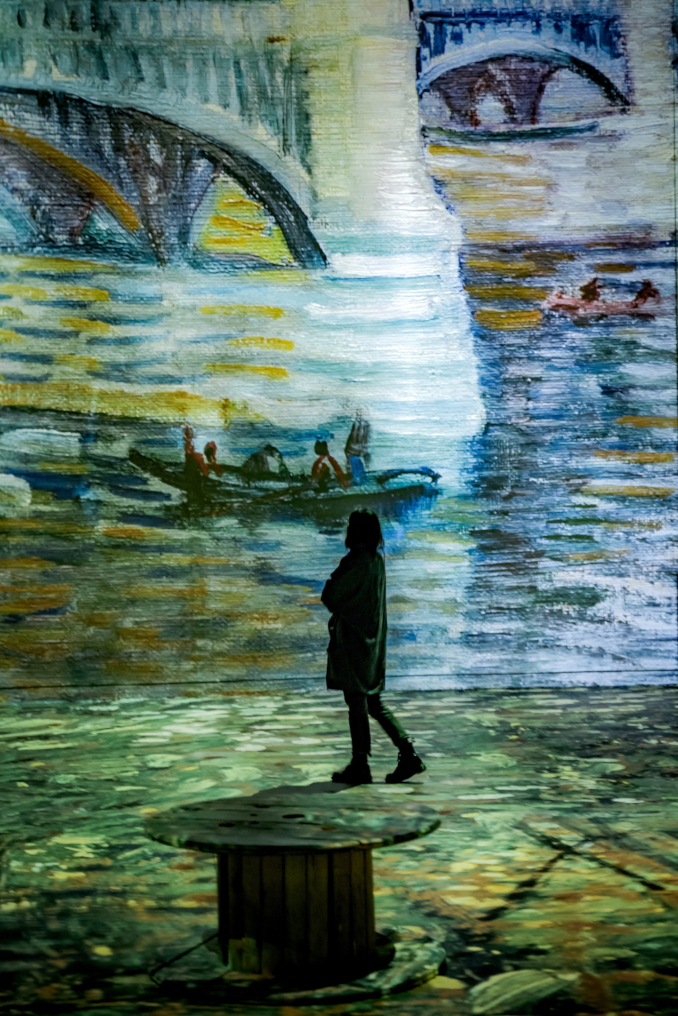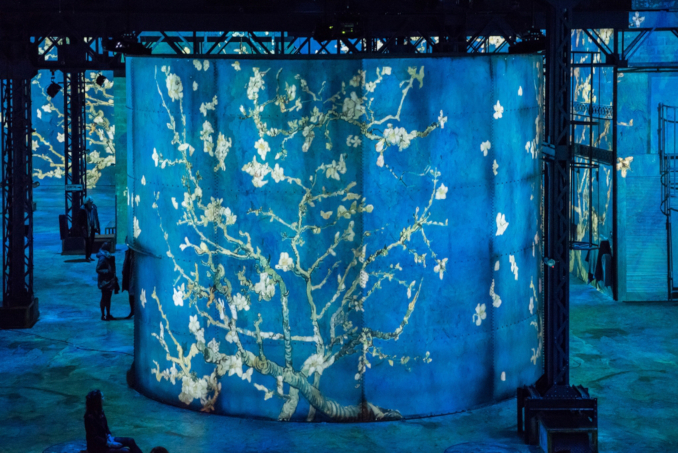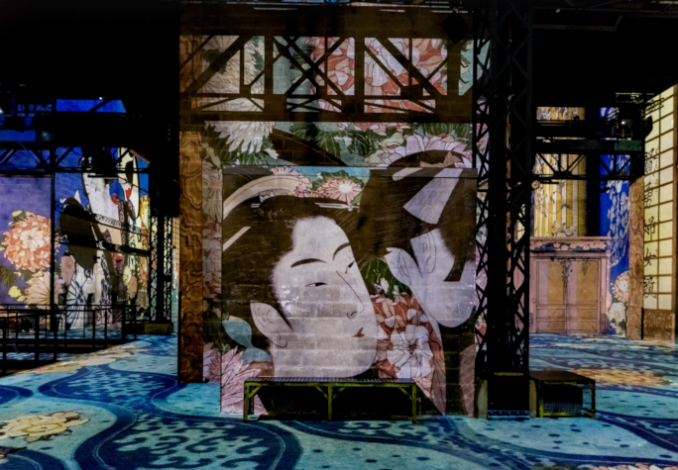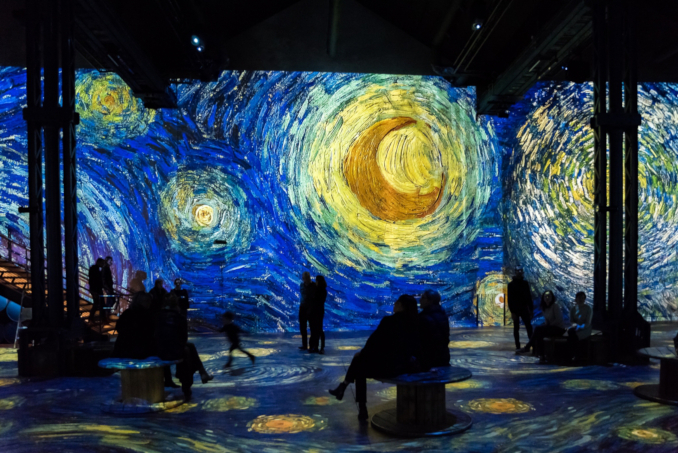“Our goal is to invite the public to walk to the heart of the artwork.”
Gianfranco Iannuzzi, artistic director and co-director of the exhibition “Van Gogh, Starry Night”
By Nina Heyn- Your Culture Scout
Crowded art exhibitions in major cities attest to our undying fascination with masterpiece paintings. Especially popular are retrospective exhibitions that allow us to see in one place many artworks that are normally located in faraway museums or among private collections. There is now another way to experience various dispersed images from the same creative source.
https://youtube.com/watch?v=FIdW-KYax-c
A French museum foundation Culturespaces has opened last year their first digital center in Paris. Visitors at the Atelier des Lumierès (“a studio of light”) could experience paintings of Gustav Klimt, Japanese woodblock prints or images of space in a new way. These large-scale wall projections from 140 laser video sources combine reproductions of famous artworks with digital technology of image and sound to provide an enchanting, immersive experience.

“Van Gogh, Starry Night” exhibition. Photo credit: Culturespaces
A current show is called “Van Gogh, Starry Night” where you can wander around Vincent’s night sky swirls to the uplifting sounds of Vivaldi’s Four Seasons or admire The Night Café to the sounds of Animals lilting mournfully Don’t Let me Be Misunderstood.
There are crowds of tourists everywhere: snapping pictures, babbling comments in a dozen of languages, and towing around excited kids. This is not a regular museum. It’s dark, the images are literally on every wall and pipe, and they come in sizes normally associated with airplanes or tall buildings. People take countless of selfies against those images and they can film unique, 360 degrees videos. Many of them just sit on the floor that is also entirely covered with light images.

“Van Gogh, Starry Night” exhibition. Photo credit: Culturespaces
Last but not least, these are not still photos – these images move. A clever animation slowly adds more details to pictures as if we were watching van Gogh actually painting. Sometimes pictures transform on the same surface from one familiar image to another, or they start moving: birds fly, wheat blades shake in the wind, stars twinkle in the water. Since these paintings draw on various collections, we can see a whole gallery of van Gogh’s numerous portraits, or we can view different versions of his irises at once – something that would be impossible to see even at the most comprehensive loan exhibition. The best part of the experience is not even an amount of artworks you can view but the sense of being totally immersed inside them. Van Gogh’s landscapes, full of strong colors, thickly applied paint and bold shapes, are particularly appropriate for this adventure of wandering inside his world.
The van Gogh show is followed by “Dreamed Japan, Images from a Floating World,” a presentation of Hiroshige and Hokusai woodcuts that have so inspired Impressionist and post-Impressionist artists, including van Gogh. Here we see whimsical cats in kimonos peek from behind trees, the Hokusai wave undulating, or some koi fish swimming across a pond. All these ukiyo-e images are assembled the way Japanese fabrics would be in stripes and folds or sometimes they form an entire landscape – a magical cat forest or a geisha house full of music and dance.

“Japan, Dreamed” exhibition. Photo credit: Culturespaces
As Atelier des Lumières demonstrates, the art of digital imagery is expanding into the field of art appreciation. Happy kids dancing around the images of Van Gogh’s Arles are the best proof that it is not necessary to be an art connoisseur to have a direct, happy experience with it. Atelier des Lumières have reported 4 million visitors in 2018.
Museums around the world are striving to bring in modern technology into art appreciation. Last fall, a Magritte exhibition at the San Francisco Museum of Modern Art featured an augmented reality gallery to enhance the experience of Magritte’s surrealist world. Visitors could take selfies of being inside a painting or peek out of a “Magritte window.” Many more of these digital and AR rooms start popping out at art museums and historical sites. Atelier des Lumières, based in the city bursting with the most favorite paintings in the world, is a particularly good way to bring art masterpieces to new generations.
Check It Out!

